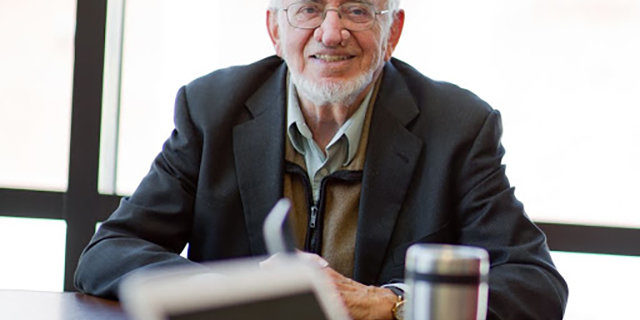Howard Lesnick was a pioneer and inspiration for many, and changed how we think of legal education.
In the mid-60s, Howard was the ideal law professor for young aspiring Penn law students to have as a teacher and mentor. As the welfare rights movement emerged amidst a larger civil rights movement and War on Poverty, Howard created and taught Income Security, the first poverty law course at the Law School. It brought, for the first time at Penn Law, safety-net programs like public assistance and unemployment compensation into a law school curriculum that concentrated on subjects like corporate law, torts, and civil procedure. This class inspired CLS veteran Jonathan Stein to pursue internships, and eventually a career, in legal services. Howard also supervised Stein’s writing project, likely the first Penn Law Review comment on welfare.
This was the time of the launch of the modern legal services movement, known as the Legal Services program of the U.S. Office of Economic Opportunity (the federal agency running the War on Poverty), later to become the federal Legal Services Corporation. Philadelphia’s Community Legal Services was established then in 1966. Howard had the prescience to see that this revolution required a fresh cadre of dedicated, creative new law graduates to address the systemic injustices that prior legal aid had ignored. In 1967 Howard with the OEO established the national Reginald Heber Smith Community Lawyer Fellowship Program at Penn Law to recruit idealistic new graduates from top law schools to be trained and placed in local OEO funded Legal Services programs. Howard Lesnick’s initiative led to the recruitment of more than 2,000 legal services lawyers over the life of the program, and inspired even more to devote their careers to fight alongside the poor people’s movement.
Howard inspired many Penn students and other young lawyers from around the country to work for the rights of many. Over the years, Howard continued to be a mentor, friend, advisor and inspiration for a host of legal services lawyers. Richard Weishaupt, another CLS lawyer, shared a house with him in West Philly in the early 70’s and remembers his dry wit, brilliant mind, and how he inspired his students.
Howard continued his crusade for greater ethical accountability in the law profession by helping to found the new, path-breaking public interest CUNY Law School. Eventually he returned to Penn on condition that Penn set up one of the nation’s first law school requirements that students do pro bono work in order to graduate. We at CLS miss him and are grateful to have known him.
From Jonathan Stein and Richard Weishaupt on May 05, 2021.





